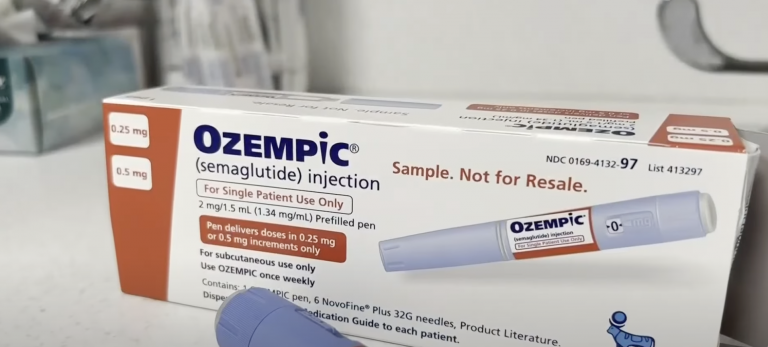Vitamins and nutrients are completely essential to the diet of all. You need to eat the right foods every day, and get the right vitamin serving. Otherwise, you might end up with health issues. Yet many people don’t know that lacking even one single vitamin in your diet will seriously affect your overall health.
What We'll Cover
And lack of vitamin D may lead to significant health problems and conditions1. Doctors assume that a vitamin D deficiency may be related to conditions such as joint pain, depression and even certain forms of cancer, according to recent research findings.

When a deficiency in vitamin D is associated with a variety of these illnesses and disorders, you need to learn more. If you don’t get enough vitamin D you need to know what could happen.
And if you don’t get enough vitamin D?
Vitamin D is a nutrient which your skin produces. However, in order to get the dose of vitamin D, exposure to sunlight is needed.

While vitamin D is something that you can get whenever you step into the sunlight, it is a powerhouse within your body. Vitamin D supports the body in the following ways, says Cleveland Clinic: Keeps bones healthy.
Helps the body absorb calcium, building up and reinforcing bones.
Helps the parathyroid glands which regulate the body’s calcium levels.
And your body is forced to find out how to function without it when you don’t get enough vitamin D. This can deplete your calcium, which in effect affects the strength of your bones. This can eventually contribute to other health issues as well.
The following are three significant health problems related to a deficiency in vitamin D.
The Correlation Between Vitamin D and Vitamin D Depression

May concentrate on calcium and bone health, but it may also play a role in your overall mental health. And lack of vitamin D may be linked with the depression-related feelings and thoughts.
A new research study has explored the possible correlation between vitamin D and depression, according to WebMD, and researchers have discovered that increased consumption of vitamin D can help alleviate certain symptoms of depression.
A number of women who were on medications with vitamin D deficiencies started taking vitamin D medication, and after 12 weeks, they began seeing their depression changed. Despite the rise in vitamin D, participants in the study have reported that their “depression levels” have increased from extreme to moderate. One saw her depression diminishing to limited symptoms.
This research study and its results suggest that making sure you get enough vitamin D can be crucial to coping with certain depression symptoms. The corresponding amount of this vitamin will make you feel better and more optimistic. As WebMD states, vitamin D may boost the levels of serotonin in the brain, which is also what antidepressants work on.
A common ailment is the Connection Between Joint Pain and Vitamin D

Joint pain, particularly as you get older. Many people feel joint pain, whether aging or a disease such as arthritis or rheumatoid arthritis result from it. Yet what many people do not know is that a lack in vitamin D can cause joint pain-it is one of the physical symptoms.
Patients who don’t get enough vitamin D can experience joint pain, as well as muscle pain in the joints, according to Medical News Today. In addition, low levels of vitamin D can also worsen rheumatoid arthritis symptoms, which also causes inflammation in the knees, legs and hips.
Some evidence indicates a deficiency in vitamin D could be related to rheumatoid arthritis. Studies show that vitamin D can have an anti-inflammatory effect and can ease joint pain–and a lack of this essential nutrient can do just the opposite.
If you have questions about your joint pain, speak to your doctor about your levels of vitamin D.
Cancer is one of the main

Most urgent health issues, the relation between vitamin D and cancer. And there are plenty of potential risk factors that can contribute to cancer. Interestingly, something as basic as a deficiency of vitamin D may play a part too.
Study studies are discovering that certain forms of cancer and vitamin D may be related. A shortage of vitamin D can increase your risk of developing these specific cancers.
Women with low levels of vitamin D could be at a higher risk for breast cancer according to BreastCancer.org. It may be because vitamin D has an effect on the growth of breast cells. Healthline further states that a vitamin D deficiency can also increase the risk of prostate cancer in a man. Some studies have shown that vitamin D can delay the progression of prostate cancer, others have shown that prostate cancer is less frequent in areas where there is more sun exposure.
In the end, ensuring you get the correct amount of vitamin D is a smart idea. When you have questions about the cancer risk, speak to your doctor about vitamin D and other possible risk factors.
How to Avoid a Vitamin D Deficiency

There is still much to be learned by the scientific community about the connection between vitamin D deficiency and health problems such as joint pain, cancer and depression. Yet, right now, you should do something. You should ensure you get good nutrition and meet the recommended daily amount of vitamin D.
The Institute of Medicine11 officially recommends 600 IU of vitamin D for persons up to 70 and 800 IU for persons over 70 years of age. You can change your diet to make sure you get nutrients from your food, or take supplements for vitamin D if necessary. When you don’t get enough vitamin D you can also speak with your doctor.
Taking steps now and fixing or preventing a deficiency of vitamin D could in future prevent possible health problems. You could increase your risk of developing certain conditions and make vitamin D an important part of your nutrition
The responses below are not provided, commissioned, reviewed, approved, or otherwise endorsed by any financial entity or advertiser. It is not the advertiser’s responsibility to ensure all posts and/or questions are answered.





